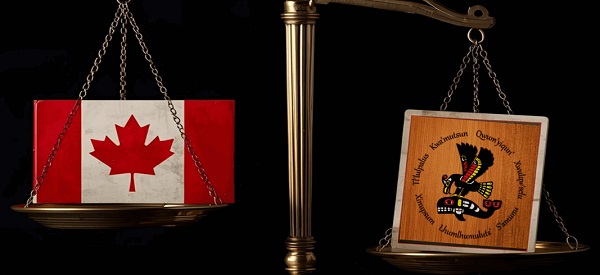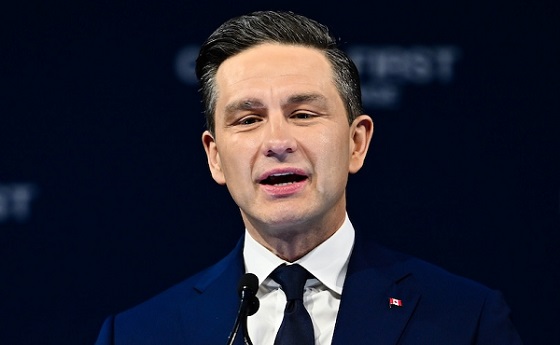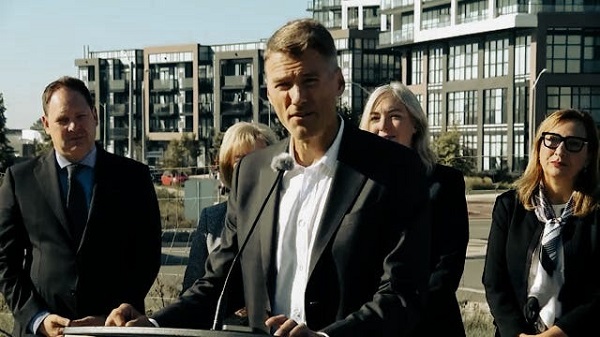Alberta
Hinshaw challenged over violating Charter freedoms of Albertans

Originally published on October 29, 2020 by The Justice Centre for Constitutional Freedoms
CALGARY: The Justice Centre today responded to new violations of the Charter-protected freedoms of association and peaceful assembly, announced earlier this week by Dr. Deena Hinshaw, Alberta’s Chief Medical Officer.
On October 26, Dr. Hinshaw declared that Albertans in Calgary and Edmonton cannot gather in groups larger than 15 for dinner parties, birthday parties, wedding and funeral receptions, retirement parties, baby showers and other social events.
“This Order violates freedom of association and freedom of peaceful assembly, as protected by the Canadian Charter of Rights and Freedoms,” stated lawyer John Carpay, president of the Justice Centre.
“This Order is based on ‘cases’ of COVID-19 in Alberta, including thousands of ‘cases’ among people who are not experiencing any symptoms or illness. This Order is not properly grounded in relevant considerations such as deaths, hospitalizations, and ICU capacity, and is therefore not a justifiable violation of fundamental Charter freedoms,” continued Carpay.
Prior to lockdowns being imposed this past March, the word “cases” typically referred to people who are actually sick and clearly displaying symptoms. But today’s “cases” include completely healthy people who simply had a positive PCR test. The reliability of the PCR tests is increasingly in dispute, with the number of false positives as high as 90% according to some reports.
Unsurprisingly, the number of “cases” rises with the number of tests that governments conduct. For example, September saw 28,763 “cases” in Canada, as a result of testing almost two million Canadians.
“What really matters is not the ‘cases’ of perfectly healthy people, but rather the fact that 25,000 Canadians die each month,” explained Carpay. “In September, 171 of those 25,000 Canadian deaths were attributed to COVID-19.”
The media continues to hype “cases” and warn of a “second wave.” Yet government data
shows that since May, monthly COVID-19 deaths in Alberta have remained under 50, with more than 2,000 Albertans dying each and every month of other causes, based on 27,000 Albertans dying each year. Deaths peaked in April and May, when 134 Albertans died along with about 4,000 Albertans who died in those same two months from other causes.
In Alberta and elsewhere, COVID-19 significantly threatens elderly people with one, two, three or more serious pre-existing health conditions, as well as a very small number of adults under 60. However, COVID-19 does not have a significant impact on overall life expectancy. The average age of those reported as COVID deaths in Alberta is 83. Life expectancy in Alberta is 82. To date, 309 Albertans, predominantly elderly near the final stages of their life, have died of COVID-19, almost all of them with one or more serious comorbidities.
“Government data shows that COVID-19 is not the unusually deadly killer that Premier Kenney and Dr. Hinshaw made it out to be when they claimed in April that—even with lockdown measures in place—as many as 32,000 Albertans would die of the virus,” stated Carpay.
“Politicians claim that the lockdowns saved many lives, but they have yet to put forward actual evidence that might support their speculation and conjecture,” stated Carpay.
“Each of Alberta’s 309 COVID-19 deaths is sad and tragic, and so are the other 26,917 deaths that occur in Alberta each year,” continued Carpay.
Each and every month, Albertans mourn the passing of over 2,000 friends and family members, who die of cancer, car accidents, alcoholism, drug overdoses, suicide, heart disease, delayed surgeries, and many other causes. In the past seven months more than 14,000 Albertans have died, 309 of the virus and the remainder of other causes.
Since March, lockdown harms such as increase in drug overdoses, which kill more Albertans than COVID-19 does, have been either ignored or accepted, as if dying of COVID-19 is somehow worse than dying of another cause.
“In light of the Alberta government’s own data on COVID-19 deaths, there is no rational basis for forcing all Albertans to continue living in fear,” stated Carpay.
“Alberta’s politicians and health officials should focus their attention on protecting those who are at serious risk from COVID-19, rather than violating the Charter freedoms of the entire population,” stated Carpay.
“Albertans, and all Canadians, should exercise their freedom of association and freedom of peaceful assembly without fear of prosecution or penalty. This is especially true for the young, who are at more risk of being struck by lightning than dying of COVID,” concluded Carpay.
Source: https://www.jccf.ca
Alberta
Diploma Exams Affected: No school Monday as ATA rejects offer of enhanced mediation

Premier Danielle Smith, Minister of Finance Nate Horner, and Minister of Education Demetrios Nicolaides issued the following statement.
“Yesterday, the Provincial Bargaining and Compensation Office wrote to the Alberta Teachers’ Association (ATA) and formally requested an agreement to enter an enhanced mediation process.
“This process would have ensured that students returned to the classrooms on Monday, and that teachers returned to work.
“Negotiating would have continued with the ATA, Teachers’ Employer Bargaining Association (TEBA) and a third-party mediator to propose a recommended agreement.
“We are very disappointed that the Alberta Teachers’ Association refused this offer. Teachers and students should also be disappointed.
“PBCO made this offer to the ATA because the union has not made a reasonable offer and this strike is impacting students. Alberta’s government is trying to put kids first and bring an end to this strike.
“The offer of enhanced mediation provided a clear path to ending it.
“We want the same things as the ATA: More teachers. More pay for teachers. More educational assistants. And more classrooms.
“This strike has gone on too long and we are extremely concerned about the impact it is having on students.
“We are willing to consider further options to ensure that our next generation gets the world-class education they deserve. After about three weeks, a strike of this nature would reach the threshold of causing irreparable harm to our students’ education.
“The ATA needs to do what is right for its members, and for all Alberta students.
“If it refuses to do so, we will consider further options to bring this strike to an end.”
Diploma exam update
November diploma exams will be optional for students.
With instructional time in schools disrupted due to the teacher strike, the November 2025 diploma exams will now be optional for students. Students who wish to write a diploma exam may request to do so, and their school boards will accommodate the request.
The optional diploma exams apply to all schools provincewide. These exams will still take place on the currently scheduled dates.
Students who choose not to write the November diploma exams can still complete their courses and graduate on time. Their final grade will be based entirely on the school-awarded mark provided by their teacher.
Choosing not to write the November diploma exams will not affect a student’s ability to apply to, be accepted by, or attend post-secondary institutions after graduation.
No changes have been made to the January and June diplomas and provincial achievement tests.
Quick facts
- Students are automatically exempted from writing the November diploma exams but can request to write them.
- School boards must allow the student to write the diploma exam if requested.
Alberta
Alberta taxpayers should know how much their municipal governments spend

From the Fraser Institute
By Tegan Hill and Austin Thompson
Next week, voters across Alberta will go to the polls to elect their local governments. Of course, while the issues vary depending on the city, town or district, all municipal governments spend taxpayer money.
And according to a recent study, Grande Prairie County and Red Deer County were among Alberta’s highest-spending municipalities (on a per-person basis) in 2023 (the latest year of comparable data). Kara Westerlund, president of the Rural Municipalities of Alberta, said that’s no surprise—arguing that it’s expensive to serve a small number of residents spread over large areas.
That challenge is real. In rural areas, fewer people share the cost of roads, parks and emergency services. But high spending isn’t inevitable. Some rural municipalities managed to spend far less, demonstrating that local choices about what services to provide, and how to deliver them, matter.
Consider the contrast in spending levels among rural counties. In 2023, Grande Prairie County and Red Deer County spent $5,413 and $4,619 per person, respectively. Foothills County, by comparison, spent just $2,570 per person. All three counties have relatively low population densities (fewer than seven residents per square kilometre) yet their per-person spending varies widely. (In case you’re wondering, Calgary spent $3,144 and Edmonton spent $3,241.)
Some of that variation reflects differences in the cost of similar services. For example, all three counties provide fire protection but in 2023 this service cost $56.95 per person in Grande Prairie County, $38.51 in Red Deer County and $10.32 in Foothills County. Other spending differences reflect not just how much is spent, but whether a service is offered at all. For instance, in 2023 Grande Prairie County recorded $46,283 in daycare spending, while Red Deer County and Foothills County had none.
Put simply, population density alone simply doesn’t explain why some municipalities spend more than others. Much depends on the choices municipal governments make and how efficiently they deliver services.
Westerlund also dismissed comparisons showing that some counties spend more per person than nearby towns and cities, calling them “apples to oranges.” It’s true that rural municipalities and cities differ—but that doesn’t make comparisons meaningless. After all, whether apples are a good deal depends on the price of other fruit, and a savvy shopper might switch to oranges if they offer better value. In the same way, comparing municipal spending—across all types of communities—helps Albertans judge whether they get good value for their tax dollars.
Every municipality offers a different mix of services and those choices come with different price tags. Consider three nearby municipalities: in 2023, Rockyview County spent $3,419 per person, Calgary spent $3,144 and Airdrie spent $2,187. These differences reflect real trade-offs in the scope, quality and cost of local services. Albertans should decide for themselves which mix of local services best suits their needs—but they can’t do that without clear data on what those services actually cost.
A big municipal tax bill isn’t an inevitable consequence of rural living. How much gets spent in each Alberta municipality depends greatly on the choices made by the mayors, reeves and councillors Albertans will elect next week. And for Albertans to determine whether or not they get good value for their local tax dollars, they must know how much their municipality is spending.
-

 International2 days ago
International2 days agoPoland’s president signs new zero income tax law for parents with two children
-

 Automotive1 day ago
Automotive1 day ago$15 Billion, Zero Assurances: Stellantis Abandons Brampton as Trudeau-Era Green Deal Collapses
-

 Alberta2 days ago
Alberta2 days agoDiploma Exams Affected: No school Monday as ATA rejects offer of enhanced mediation
-

 Business12 hours ago
Business12 hours agoJudges are Remaking Constitutional Law, Not Applying it – and Canadians’ Property Rights are Part of the Collateral Damage
-

 Business1 day ago
Business1 day agoFord’s Whisky War
-

 Business13 hours ago
Business13 hours agoTrump Blocks UN’s Back Door Carbon Tax
-

 International2 days ago
International2 days agoAustralian territory bans men from women’s prisons in national first
-

 National2 days ago
National2 days agoPoilievre accuses Canada’s top police force of ‘covering up’ alleged Trudeau crimes





